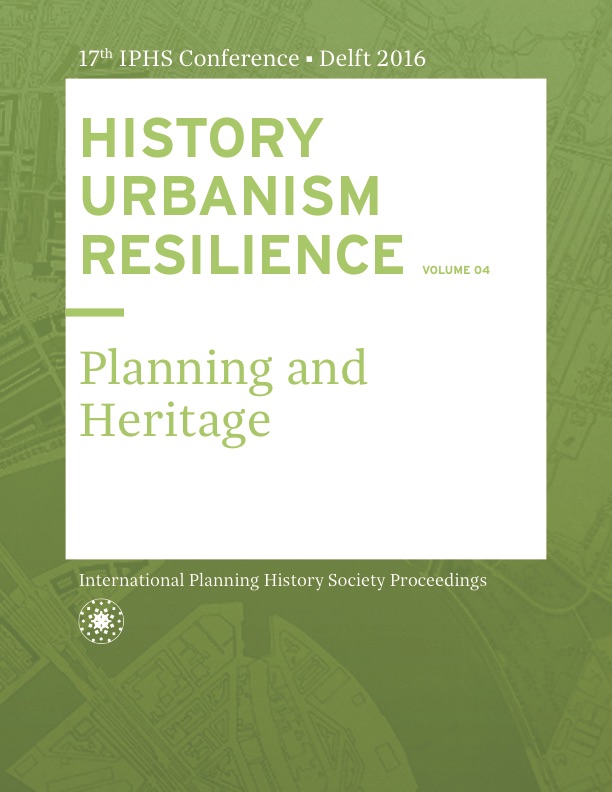INFLUENCES OF RENAMING STREETS ON URBAN MEMORY: THE CASE OF TURKEY
DOI:
https://doi.org/10.7480/iphs.2016.4.1280Abstract
Streets are the main arteries that provide common living ground, connect functions to each other and form society’s structure. They are places where everybody in the city can spend their time, socialize and fulfil their daily needs without making any efforts. Streets, which form the structure of the societies are memorial places hiding past experiences within themselves. Memory has a living structure like cities have. This is why aspects such as forgetting, remembering and storing information are noticeable in cities as well. Once components forming the urban memory are removed from cities, connection is cut off which leads to forgetting and the erase of urban memory. Earthquakes, fires and possible other physical changes are the most important causes for the loss of urban memory. Furthermore, ruptures and discontinuities by social, economic and political changes in societies (like migration) also cause urban memory loss. The best and quickest way to notice urban memory is through naming of streets. Therefore, urban memory should be managed as well as possible and preservation of distinctive values of cities should be provided.Street naming is done since the very old. Toponymy is the science dealing with origins, meanings, uses and types of place-naming (toponyms). Considering the world’s place-naming types, every country/region has developed a system based on its own culture. In Europe, streets are mainly named to important buildings located in the surroundings. Main Street / Avenue, School Street, Station Street and Church Street are the ones commonly used.
Street naming in Turkey entered our lives during the early years of the Turkish Republic. Naming streets started in 1927 to facilitate the first general census. Notions related to the Republic that are frequently used in naming streets are historical names from the War of Independence and Atatürk. Due to recent developments in the country, there have been changes implemented in street naming in order to re-establish the social memory. The term urban place-naming has just been introduced and debated in Turkey and thus it is a significant concept. The first debates regarding the names of old villages which lost their meaning are done in the course of ‘Turcisizing’. Following, many of the scientific studies on street naming are still not sufficient enough, especially in the field of urban planning.
In this manner, the purpose of this paper is to evaluate the effect of interventions and changes in street naming on urban memory. This issue is ought to be debated in the framework of Urban cultural heritage and the preservation of urban memory, which is a subtheme of the conference theme Urban Resilience. In this research, there will be a comparative study focused on developing legal setting, written historical documents and various particularly identified residential settlements in Turkey from 1930s till today. The main interest of the research is to reveal that street naming -as the main element of built environment and urban structure- is directly affected by the environments’ natural and socio-economic situation and is carrying the traces of it.
Downloads
Published
2016-06-30
How to Cite
Ayatac, H., & Araz, S. (2016). INFLUENCES OF RENAMING STREETS ON URBAN MEMORY: THE CASE OF TURKEY. International Planning History Society Proceedings, 17(4). https://doi.org/10.7480/iphs.2016.4.1280
Issue
Section
Conference paper

